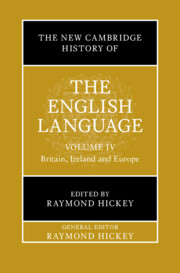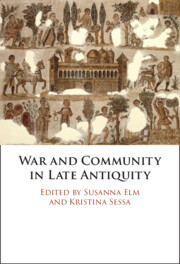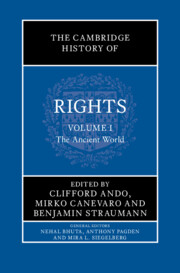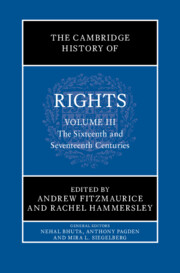Refine search
Actions for selected content:
615759 results in History

Diasporic State-Building
- Transnational Networks and the Making of Post-2003 Iraq
- Coming soon
-
- Expected online publication date:
- February 2026
- Print publication:
- 28 February 2026
-
- Book
- Export citation

Writing Politics in Modern Britain
- Genre and Cultures of Publishing since 1900
- Coming soon
-
- Expected online publication date:
- February 2026
- Print publication:
- 28 February 2026
-
- Book
- Export citation
A Concise History of Ireland
- Coming soon
-
- Expected online publication date:
- February 2026
- Print publication:
- 28 February 2026
-
- Book
- Export citation

The New Cambridge History of the English Language
- Britain, Ireland and Europe
- Coming soon
-
- Expected online publication date:
- February 2026
- Print publication:
- 28 February 2026
-
- Book
- Export citation

War and Community in Late Antiquity
- Coming soon
-
- Expected online publication date:
- February 2026
- Print publication:
- 28 February 2026
-
- Book
- Export citation

The Cambridge Companion to the History of Multinationals and Society
- Coming soon
-
- Expected online publication date:
- February 2026
- Print publication:
- 28 February 2026
-
- Book
- Export citation

Leaping Decolonization
- North Africa in the Global 1960s and 1970s
- Coming soon
-
- Expected online publication date:
- February 2026
- Print publication:
- 28 February 2026
-
- Book
- Export citation
The New Cambridge History of the English Language
- North America and the Caribbean
- Coming soon
-
- Expected online publication date:
- February 2026
- Print publication:
- 28 February 2026
-
- Book
- Export citation

Stereotypes in Black
- Afro-Argentines and Visual Culture in Nineteenth-Century Buenos Aires
- Coming soon
-
- Expected online publication date:
- February 2026
- Print publication:
- 28 February 2026
-
- Book
- Export citation

The Cambridge History of Rights
- Coming soon
-
- Expected online publication date:
- January 2026
- Print publication:
- 27 November 2025
-
- Book
- Export citation

The Cambridge History of Rights
- Coming soon
-
- Expected online publication date:
- January 2026
- Print publication:
- 27 November 2025
-
- Book
- Export citation

The Cambridge History of Rights
- Coming soon
-
- Expected online publication date:
- January 2026
- Print publication:
- 31 December 2025
-
- Book
- Export citation

The Evolution of Western Thought
- A New History, from Antiquity to the Early Modern Era
- Coming soon
-
- Expected online publication date:
- January 2026
- Print publication:
- 31 January 2026
-
- Textbook
- Export citation
American Metropolis
- The Making of Mexico City
- Coming soon
-
- Expected online publication date:
- January 2026
- Print publication:
- 31 January 2026
-
- Book
- Export citation

Keeping Hold
- A Cultural and Social History of Possession in Eighteenth-Century Britain
- Coming soon
-
- Expected online publication date:
- January 2026
- Print publication:
- 31 January 2026
-
- Book
- Export citation

Challenging the Caliphate
- Wahhabism and Mahdism in the Late Ottoman Empire
- Coming soon
-
- Expected online publication date:
- January 2026
- Print publication:
- 31 January 2026
-
- Book
- Export citation
The Political Writings of Abraham Lincoln
- Coming soon
-
- Expected online publication date:
- January 2026
- Print publication:
- 31 January 2026
-
- Book
- Export citation

Think of England
- Nation, People, and Race in the English Imagination
- Coming soon
-
- Expected online publication date:
- January 2026
- Print publication:
- 31 January 2026
-
- Book
- Export citation
The State in Machiavelli
- Coming soon
-
- Expected online publication date:
- January 2026
- Print publication:
- 31 January 2026
-
- Book
- Export citation
The Coveted Mount
- The Horse in South Asian History
- Coming soon
-
- Expected online publication date:
- January 2026
- Print publication:
- 01 May 2027
-
- Book
- Export citation
